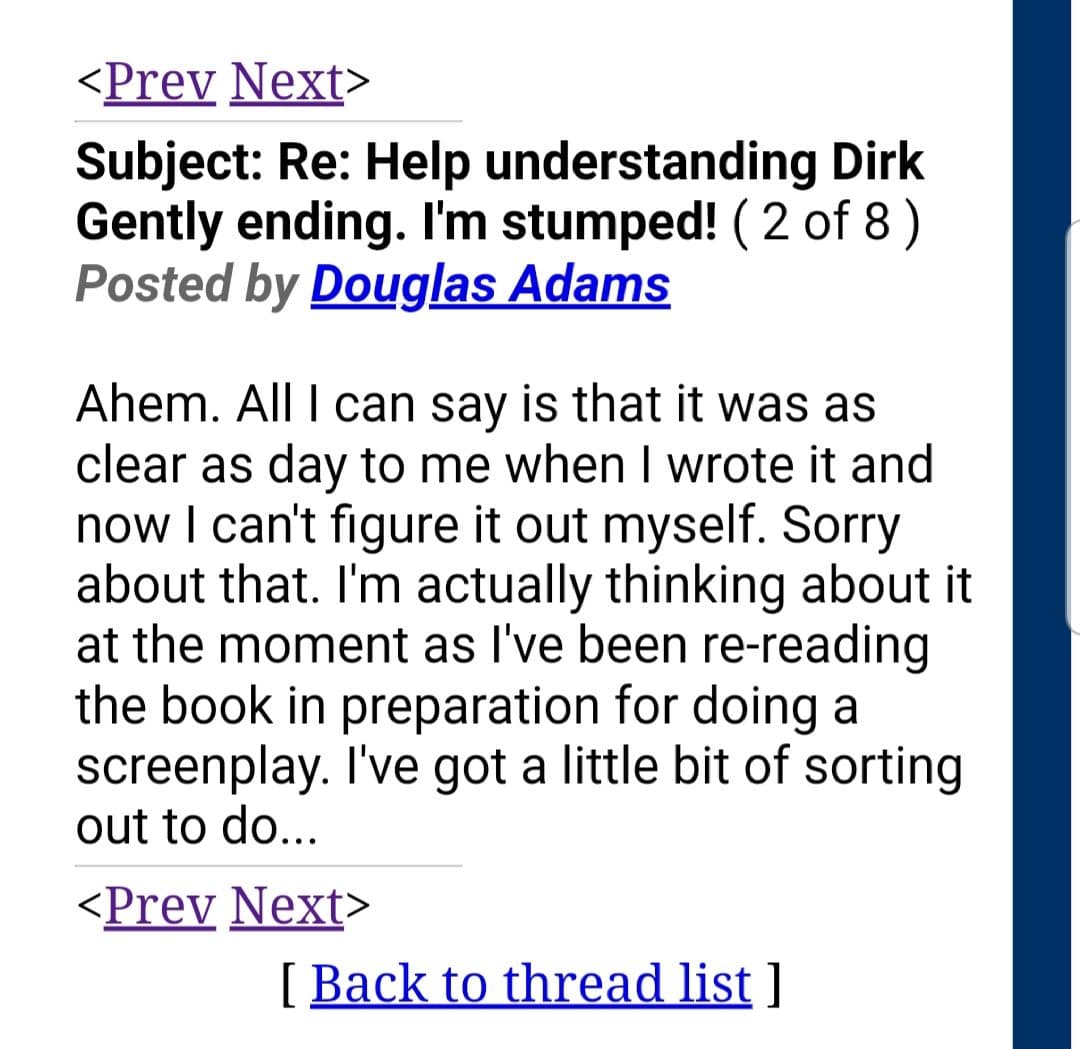Dirk Gently's holistic detective agency - D. Adams
Posted
I really liked the Netflix series, so I’ve been wanting to read the books for a while. Part of the reason was that with nonsensical humour and paradoxes all over the place I wasn’t quite sure if the parts I had not understood and the parts I was not supposed to understand anyway coincided - as it turns out the series has little to do with the book (the first one, at least), but the spirit of the book is pretty much preserved1. It’s a pity the series decided to completely go ballistic in the second season, I am not sure why they thought that would be a good idea - and I say this having liked it!
Coming back to the book and its sense of humour, I refer to this kind of openings:
Deep in the rain forest it was doing what it usually does in the rain forests, which was raining: hence the name.
All the book is like this, with a bit of a plot in between. Coming from Antifragile I found this passage particularly telling:
If the Universe came to an end every time there was some uncertainty about what had happened in it, it would never have got beyond the first picosecond. And many of course don’t. It’s like a human body, you see. A few cuts and bruises here and there don’t hurt it. Not even major surgery if it’s done properly. Paradoxes are just the scar tissue. Time and space heal themselves up around them and people simply remember a version of events which makes as much sense as they require it to make.
A point Taleb raises more than once in its book is that while the idea of robust/resilient is well estabilished (“a few cuts […] don’t hurt it”), the one of antifragile - in short: systematic post-traumatic growth - seems to be especially elusive. You can get as close as these few lines above and still miss it.
After finishing the book I did the only logical thing and bought the next one in the series - then I started preparing dinner and suddenly realized I had not understood the ending, where something has to be done in order to save the day, but if you look closely enough at the something it’s not clear why it needs to be done at all. I search around a bit and on the internet several other people have the same questions, until in one of the threads there’s the answer Douglas Adams himself provided:

-
When it works, this takes away the disappointment of having characters portrayed in a different way from the one you imagined and still delivers the enjoyment of having a movie based on a book you like. Best of both worlds! ↩︎